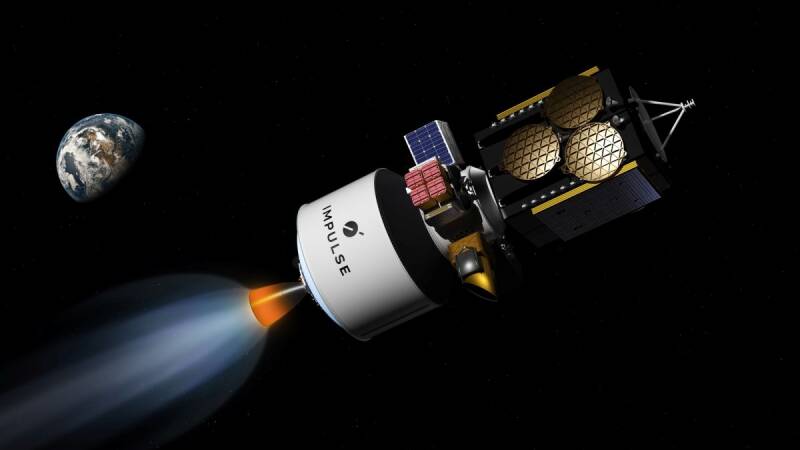In a significant step forward for orbital logistics, Impulse Space has signed a multi-launch agreement with global satellite operator SES to deliver its satellites to medium Earth orbit (MEO) and geostationary orbit (GEO). The partnership kicks off with a 2027 mission that will see Impulse’s Helios transfer vehicle carry a four-ton SES satellite from low Earth orbit (LEO) to GEO in under eight hours.

Impulse Space's Helios kick stage is designed to move large satellites from LEO to GEO. Credit: Impulse Space
The launch vehicle for that mission, as well as details about the specific SES satellite, were not disclosed. However, the companies confirmed the agreement includes potential future missions, opening the door for additional SES payloads to be delivered to high-energy orbits using Helios.
This marks the first commercial contract for a dedicated Helios mission. Unveiled in early 2024, Helios is a high-performance space tug designed to move payloads of up to five tons from LEO to GEO in less than 24 hours—significantly faster than the weeks or even months required by traditional electric propulsion systems or standard kick stages.
“Medium and geostationary orbits are vital to the space economy, yet access remains slow, costly, and rigid,” said Tom Mueller, founder and CEO of Impulse Space. “Helios changes that, offering rapid and dependable transport of heavy payloads to high-energy orbits.”
SES CEO Adel Al-Saleh highlighted the operational advantages of the new capability. “Partnering with Impulse enables us not only to reach orbit faster but also to extend satellite lifetimes and bring services to market more quickly,” he said.
SES has a history of pushing the envelope in launch technology. It was the first GEO satellite operator to fly with SpaceX and the first to launch on a reused Falcon 9 booster.
While SES is Helios’ first commercial customer for a dedicated mission, Impulse Space has other clients lined up. In September, it secured a contract with French startup Space Network Services to launch up to six small GEO satellites through its geostationary rideshare program. The company also landed a $34.5 million contract last October to support two U.S. military missions—Victus Surgo and Victus Salo—using its smaller Mira vehicle. For Victus Surgo, Mira will carry an optical payload to GEO aboard a Helios tug.


Add comment
Comments